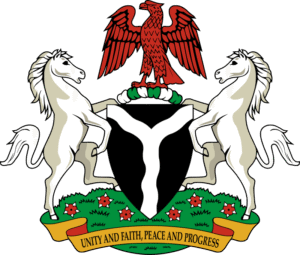A viral post circulating across social media claims that the U.S. Congress voted 285–98 to empower former President Donald J. Trump to launch military strikes against “terrorists in Nigeria.”
The message, embellished with dramatic language and political insinuations, has spread rapidly — but it is completely false.
✓ What the Claim Says
The viral message alleges that:
The U.S. Congress has formally authorised the use of military force (AUMF) in Nigeria.
A vote of 285–98 took place to empower Trump to order strikes.
The United States is preparing unilateral action against “perpetrators of genocide and terrorists in Nigeria.”

✗ None of these claims is true.
● There Is No Record of Any Such Vote in U.S. Congress
The U.S. Congress keeps detailed, public records of every vote — including authorisations for military force, which are rare, legally sensitive, and heavily scrutinised.
A search through:
U.S. House of Representatives legislative database
U.S. Senate legislative records
Congressional Roll Call archives
Authorisation for Use of Military Force (AUMF) logs
Official press releases from congressional committees
…shows no such vote, no such bill, and no congressional movement matching those vote numbers (285–98).
Congress has not authorised Trump — or any president — to conduct military strikes in Nigeria.
● What Actually Happened: Trump Threatened Action, Congress Rejected It
Recent reporting confirms:
Former President Trump made public threats regarding potential U.S. action in Nigeria over religious-freedom concerns, terrorism, or alleged government failures.
However, U.S. lawmakers immediately pushed back.
A U.S. Representative publicly stated:
“Congress has not authorised the use of military force in Nigeria. Trump’s threat was reckless.”
(Source: TheCable, quoting U.S. officials.)
In the U.S. system, no president can legally launch a foreign military intervention of this scale without explicit congressional approval.
That approval has not been given.
● Reuters Confirms Concern, Not Authorization
According to Reuters, the Trump administration added Nigeria to a watchlist over religious-freedom concerns and spoke aggressively about security issues — but there was no authorisation for military action and definitely no congressional vote.
Reuters reporting is consistent:
There is tension.
There is rhetoric.
But there is no military mandate.
● The Viral Story Appears to Be Domestic Propaganda
Key markers show the viral claim is fabricated:
No official document is cited.
No U.S. congressional leader is quoted.
The vote numbers (285–98) match no known U.S. vote on any Nigeria-related resolution.
The message contains emotional language, Yoruba idioms, and partisan undertones — all of which are not characteristics of U.S. congressional communication.
This is a classic example of domestic misinformation weaponised to create panic, stoke political fear, or project false narratives.
So What Is the Real U.S.–Nigeria Security Plan?
While the viral claim is false, the real development — confirmed by statements in Washington — is that the U.S. is advocating a Joint Counter-Terrorism Task Framework with Nigeria.
After a recent congressional hearing on insecurity in Nigeria, bipartisan members agreed:
The U.S. does not support direct military intervention in Nigeria.
Nigeria should maintain its sovereignty.
Instead, the two countries should pursue:
Joint intelligence sharing
Operational collaboration
Training and capacity building
Logistics and surveillance partnerships
Support for Nigeria’s security forces
This is the opposite of the viral claim.
The U.S. rejected unilateral strikes and supported coordinated partnership instead.
Why a Joint Task Force Matters More Than Foreign Strikes
A U.S.–Nigeria Joint Counter-Terrorism Framework is far more realistic, effective and internationally acceptable than unilateral bombing:
● Protects Nigerian sovereignty
Foreign strikes without Nigeria’s consent would violate international law.
● Reduces civilian casualties
Joint intelligence ensures accuracy and prevents mistakes common in unilateral operations.
● Strengthens Nigeria’s security institutions
Partnership builds long-term capacity, not one-off disruption.
■ Enables regional coordination
Terrorism in Nigeria overlaps with Chad, Niger, Cameroon — requiring diplomatic alignment.
■ Avoids political backlash
Foreign intervention risks public anger and destabilisation.
The current U.S. position recognises these realities.
Conclusion: Nigeria Is Not Under Threat of U.S. Strikes — The Viral Claim Is False
The U.S. Congress has not voted 285–98 to authorise Trump to bomb terrorists in Nigeria.
There is no AUMF, no such vote, no legislative movement, and no legal pathway for such a strike at this time.
What is happening is far more structured and responsible:
Nigeria and the United States are moving toward a Joint Counter-Terrorism Partnership designed to strengthen Nigeria’s ability to defeat terrorism with international intelligence and support — not foreign unilateral intervention.
As insecurity worsens, Nigeria must stay focused on solutions that respect sovereignty, protect civilians, and build lasting stability — not be distracted by false viral stories engineered to create fear or division.

Headlinenews.news Special Investigative Report.



